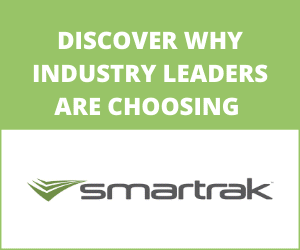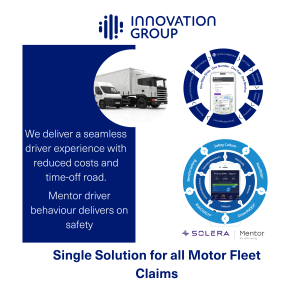
Mass-made full-electric cars are coming over the hill. Tesla Australia frontman Heath Walker talks event horizons
Forget the ancient Prius, look past a Honda Insight and make life easier than in a Nissan Leaf. Tesla Motors, the Californian electric car-maker is giving traditional manufacturers nightmares with its sophisticated, efficient, insanely quick and increasingly popular full-time electric cars. Until now however, a Tesla was priced for six-figure salary earners, but not for long.
Walk into the Tesla showroom in Church St, Richmond and you’d be forgiven for thinking you’ve accidentally walked into a funky tech centre, not a car dealership. Gone are the look-at-us inflatable skydancers and the over-friendly sales person well versed in over-optioning your new car. There are similarities like car art, a typical reception desk and some form of cross-sectioned model to pretend you understand the complexity of. Greeted, you’re escorted to a bar with an Apple LCD ready to introduce you to the new-age of personal transport, while catchy synth-pop playing gets you feeling, well, pretty groovy. The fashion conscious can even (dare to) invest in Tesla merchandise.

Heath Walker, Tesla Motors Australia
Tesla Motors Australia marketing and communications manager Heath Walker says its next car, the Model 3 (due for full-scale production in 2017) will be launched on March 31st, aimed squarely for the common man.
“Model 3 designs will be showcased this year,” Walker said. “The Tesla plan is to move towards a mass production, low-cost vehicle and sustainable transport.” Having unveiled the Model X SUV in September last year, the world is awaiting the next upset for internal combustion.
“We’ll show first designs in March with a limited showcase, as part of our three-part strategy of our secret master plan,” Walker laughs, imagining a scene from a Sean Connery Bond film. “The first part was high-cost low volume (the Roadster, 2008); second was medium-cost medium volume (Model S); and the Model 3 is part three – mass production low-cost.”
“(CEO Elon) Musk’s come out and said the Model 3 will be around $35k US ($39,000AUD) here but we’d be silly to talk pricing just yet, although it will be very competitive and comparable to a lot of other fleet options.” For the meantime, Walker says a Model S is still a compelling argument for an executive fleet buyer, considering its hefty base price of $139,000 for the 70D (the top-spec P90D is $202,000).

Gone are the all-talking, all-dancing sales relics of the past
In fact, one of Australia’s most popular brands has taken a leap of faith with Tesla. “With the Model S we’re registered on QANTAS’s fleet,” Walker said, “and many other fleet companies and major businesses are interested, so we are definitely on the fleet books. The difference is we don’t discount in the market, we want to protect the vehicle’s value. Traditional manufacturers tend to discount the hell out of fleet purchases Using a Model S for fleet means you can install the fuel source at the place of work and it sits there fully-charged until it’s ready to use.”
What Walker thinks will make the biggest difference to fleet buyers trying to reign in their fleet budgets is the nature of the all-electric car itself. “You can also have a lower cost of ownership because the car has less than seventeen moving parts, with an eight year warranty on drivetrain and motor. So the cost and efficiency over time is a compelling proposition, even though the initial cost is higher compared with 30% fuel efficiency from fossil fuelled cars with lots of parts”.
As private owners slowly take up the Tesla way of thinking, there is of course a corporate leg-up for companies who sign with an all-electric car. “There’s company benefit moving to sustainable transport,” Walker said, “given it’s got a 500km range and technological advantages being updated regularly and wirelessly, just like a smartphone. Then there’s the re-sale value guarantee which we can reveal is about to be altered from three to five years, so you’ll not lose re-sale value. We’re guaranteeing the value because we know there’s going to be demand and that it improves over time. There aren’t many propositions like that on the market.”

Plug n Play: the Tesla strategy means cars and infrastructure
Hydrogen fuel-cell vehicles have had an equally difficult birth, like the electric car. The rival technology, a thorn in the side of the publically sceptical Musk himself, has always been hampered by infrastructure. Or the lack of it. Something Tesla Energy, the sub-branch of Tesla Motors, is in the business of getting on with it, not waiting for others to go first.
“We’re ahead of schedule for our Supercharger rollout which means the eastern seaboard will be connected,” said Walker, noticeably pleased with the progress. “Also with destination charging at shopping centres, hotels etc., there are lots of companies delaying because of the chicken and the egg scenario. We’re doing the chicken and the egg, by doing the infrastructure and supplying the cars. This has been the problem with renewable transport to date – nobody wants to innovate or invest.”
Not just for city dwellers, the Superchargers strategy was to build a network of fast-charging stations to service frequented long-distance routes for Tesla owners. Linking Sydney to Melbourne was the logical first step, recently installing and unveiling new stations in Gundagai (NSW) on top of outlets already in Wodonga (Vic), and Goulburn (NSW), Australia’s oldest inland city. With 500km+ projected ranges, the additional site in Euroa (central Vic) in 2016 will secure a strong network of free-to-use recharge points for Australia’s approximate 500 Tesla owners.
“Tesla has now connected Melbourne and Sydney, and both cities to Canberra. This year we will connect up to Brisbane,” Walker said, “ahead of schedule too.” The next approved site for a Tesla Supercharger is in Port Macquarie, at Cassegrain Winery, just off the Pacific Hwy, about 380km and just over four hours north of Sydney. Based on Tesla’s current Model S range, a forecasted site to reach Brisbane would need to be in Byron Bay; Newcastle, Coffs Harbour and Gold Coast all predicted to join the network.

Only a few dots existed on the map a year ago
Australia’s ludicrous Luxury Car Tax is currently the biggest hurdle for Tesla, but this doesn’t seem to be halting progress. The only other notable hurdle for Tesla right now, is attitude. But change is in the air. “We’ve got an owner in Darwin who is one of the most remote Tesla owners in the world,” Walker said. “We give everyone a 32amp wall connector and a 10amp mobile wall socket charger, and if anything goes wrong, we send a ranger out to fix it.”
“Traditionally, we wait for the fuel gauge light to tell us when we need to prepare to fill up and we’re constantly watching the price of fuel. Our method is about getting people charging up every night (which doesn’t damage the battery) and not actually having to worry about range anxiety – because you don’t need to worry. You could argue it’s actually more anxious with petrol and diesel cars. It’s about re-training our brains because the average motorist travels 50 to 150kms a day which a Model S can do with ease.”
When the Model 3 arrives, with range still competitive thanks to more widespread Supercharger access, “that platform will allow almost anything to be put on top of that base car,” Walker said. “We might even be doing trucks soon, based on the Model 3. We’ll be in production in the next couple of years and that’s when we expect the majority of our fleet buyers to come knocking.”
“We’re firm on price, there’s no wheeling and dealing, because we’re not trying to compete with anyone. We take a single customer view no matter where you go, it’s much simpler. It means Company X knows what Company Y is paying and everyone is equal.”
The motoring media is branding Tesla a “game-changer” because it seems they’re actually doing just that. “We’re a tech company, not a car company. We’re focussed on meeting customer needs and making the transition to sustainable transport – we need customer buy-in to do that, which means giving them what they want. The benefit for fleet buyers is they’re aligning with a company focussed on that. Big companies can use that corporate responsibility and benefit from it.”

Electric cars are no longer tethered to city limits. Tesla takes to sustainable transport with a defibrillator
As for the autonomous motoring future, it seems Tesla may be philosophically ahead of the game there too. “I spoke at the South Australian driverless car conference and people were saying ‘we need to train people to use this technology’.
I got up and said ‘It’s not up to people to be trained to use it. It’s up to manufacturers to make it easy to use.’ That way the learning isn’t hard, it’s natural; it’s about ergonomics and customer service. How hard is it to use cruise control? Remember the first time you took your feet off the pedals? Easy.”
One day we might be saying to each other, ‘Remember when we used to fill up with petrol?’ Even sooner, you groovy fashion-focussed, climate-conscious fleet buyers may not pay for a single drop – imagine that.
The question is: do you (dare to) invest in an electric car, or just buy a t-shirt?













